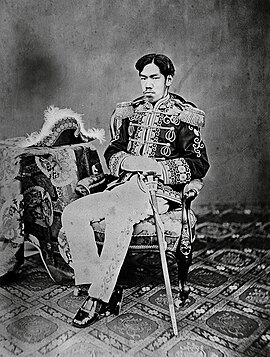Know your rights, but also know when to invoke them
The 'debate' over cartoons of the prophet Mohammed is blazing apace in New Zealand, with the Dominion publishing an image of the prophet Mohammed that has offended Muslims in Europe. Muslims have reacted by marching down Queen Street. According to some, it's a toss-up between protecting freedom of speech and allowing disgruntled minorities to dictate what gets published in this country.
I see this situation as one of provocation. Some simple-minded Danish journalist, it turns out, was unaware of the offensive nature to Muslims of his cartoon. European Muslims reacted by telling him it was offensive (as is consistent with their right to freedom of speech), 'provoking' the Western press across the world to republish the cartoon, leading to even more acrimony from Muslims. The whole thing is just silly, and an indictment on Journalistic talent in the West.
Cue Helen Clark, who correctly points out that the issue is not about 'rights' at all. The Dominion has the 'right' to publish the picture of the prophet Mohammed, but that does not mean that it should do so. Newspapers make editorial decisions all the time on what type of material is proper for public comsumption. Off-colour religious cartoons about Christianity or the Holocaust are to be avoided like the plague. A few years ago, a Herald cartoonist was sacked for the latent and reoccurring antisemitism in his work. Papers have a 'right' to print all such material, but they excercise discretion when they deem it necessary.
The argument here is whether the Dominon SHOULD have published the cartoon, not whether it had the right to. The Dominion claims it realised that the cartoon would be offensive to many, but decided that its decision to reprint it was based on the public's right to the free-flow of information. This is another red herring. The actual cartoon itself was fairly simple, meaning its further publication was hardly educative. Better just to describe the image and avoid offending a minority that often feels marginalised in New Zealand society.
Not that this is an argument for violent recriminations towards the Dominion et al. The arson and death threats from the Muslim community in the Middle East should rightly be deplored. However, I think we should reserve a word of praise for New Zealand Muslims, who have shown their diapproval in a peaceful and democratic manner. That's what freedom of speech is about, after all.
I see this situation as one of provocation. Some simple-minded Danish journalist, it turns out, was unaware of the offensive nature to Muslims of his cartoon. European Muslims reacted by telling him it was offensive (as is consistent with their right to freedom of speech), 'provoking' the Western press across the world to republish the cartoon, leading to even more acrimony from Muslims. The whole thing is just silly, and an indictment on Journalistic talent in the West.
Cue Helen Clark, who correctly points out that the issue is not about 'rights' at all. The Dominion has the 'right' to publish the picture of the prophet Mohammed, but that does not mean that it should do so. Newspapers make editorial decisions all the time on what type of material is proper for public comsumption. Off-colour religious cartoons about Christianity or the Holocaust are to be avoided like the plague. A few years ago, a Herald cartoonist was sacked for the latent and reoccurring antisemitism in his work. Papers have a 'right' to print all such material, but they excercise discretion when they deem it necessary.
The argument here is whether the Dominon SHOULD have published the cartoon, not whether it had the right to. The Dominion claims it realised that the cartoon would be offensive to many, but decided that its decision to reprint it was based on the public's right to the free-flow of information. This is another red herring. The actual cartoon itself was fairly simple, meaning its further publication was hardly educative. Better just to describe the image and avoid offending a minority that often feels marginalised in New Zealand society.
Not that this is an argument for violent recriminations towards the Dominion et al. The arson and death threats from the Muslim community in the Middle East should rightly be deplored. However, I think we should reserve a word of praise for New Zealand Muslims, who have shown their diapproval in a peaceful and democratic manner. That's what freedom of speech is about, after all.


2 Comments:
Hear, hear! Well said all round sir.
Any paper which publishes said cartoons *now*, once it is plain for all to see that they are causing real problems all over the world is, in my opinion, especially out of line.
As, incidentally, are those who are rioting and attacking Western government buildings in various countries around the world. It's one thing to be offended or affronted and to make that clear. It's quite another to make that clear by violence and vandalism.
The Muslim Community in Germany deserves a pat on the back too. They've come out today and said that while they find the cartoons offensive and in poor taste, they also condemn the violence in the Middle East etc and calling for calm, both here and there and on both sides. Respect.
You've been blogrolled, btw.
Thanks, I must correct an error in my own post though. The Danish newspaper (and hence, probably the journalist) was not only aware of the potential offense to Muslims of the cartoon, they were published as part of a *competition* to "test" the limits of freedom of speech. As Kofi Annan said, I just can't understand why anyone would see this as good judgment.
Post a Comment
<< Home